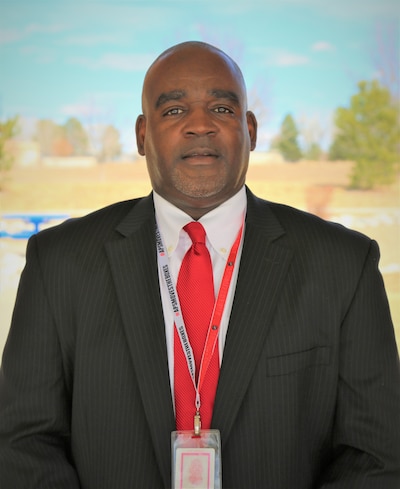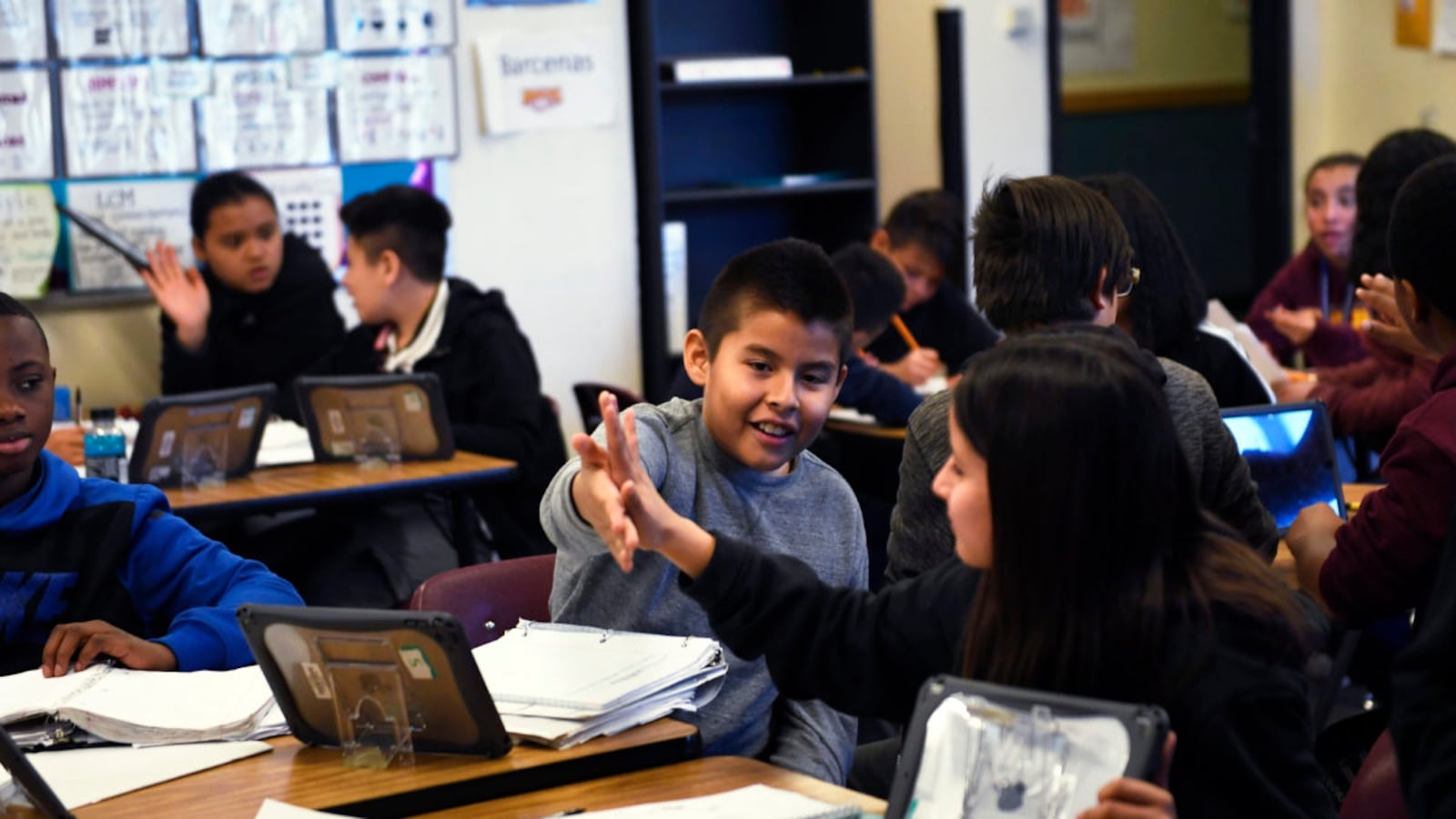Andre Wright has a sizeable task ahead: Help all of Aurora’s schools improve their academics.
The district’s new chief academic officer, Wright was appointed this month by superintendent Rico Munn. He’s not brand-new to the job, having served in in interim basis since September. And he’s familiar with the community, too, having previously overseen several schools, including Hinkley High School and East Middle School, as one of the district’s learning directors.
But it’s still a time of uncertainty for Aurora, where school officials are trying to increase the district’s academic momentum.
A few schools may face state intervention soon without faster improvements. The school board also got four new members last November.

Chalkbeat talked to Wright about his plans for his new role and why he’s already revamped one key process. The interview has been lightly edited for clarity and length.
Chalkbeat: Tell me a little about yourself.
Wright: I’m originally from Atlanta, Georgia. I am the product of two educators. My father was an educator, my mother retired as an educator. She was in every building that I was in, so I never got a chance to get away from mom.
I understood early on the value of education. Statistically, there were opportunities for me to have made different choices. But I can attribute a lot of the positive choices that I made because of my educational experience.
My job is to make sure that we create conditions and systems that allow every single student to obtain benefit from their educational experience. That’s what is most important for me.
What attracted you to the position of chief academic officer?
One of the things that happened is that I served as the interim and also continued serving as learning community director. Being in the role gave me a vantage point that I didn’t have previously.
We’ve done some pretty good things here. We have some momentum, but being able to see it from both sides of the house — I felt like this would be a great opportunity to really do what we say, and that is accelerate the learning of every APS student every day.
How do you see your past role influencing how in your new position you help the district work with schools?
As a learning community director, my responsibility was for the 10 schools that I supported and the support team. In this position now, it’s all of them.
How do I capture all of the positives from each one of the different structures that we had in place previously, along with the work that I did while serving community P, (the group of schools that he was assigned to as learning director) and then bring that up to scale? I think that’s my most important task.
And the last thing is just getting resources closest to our schools so they can do the work.
As you take over this role for Aurora schools, should school educators expect changes to how the district interacts with them?
I think we just have to be more responsive to the needs of our schools. You learn from all the things that you’ve done over the years, and then you say, where are the gaps, where are the parts that we may have missed, and then how do you fill that gap? And respond accordingly.
Are there gaps you already identified that you want to fill?
There’s always room for improvement. We have been fortunate to have a partnership with the University of Virginia Partnership for Leaders program, and there are some key learnings that some principals got. When they bring it back, they share that learning with other principals. I think maybe there’s an opportunity for us to expand that learning, to make sure all of our principals are getting that type of experience from a leadership development perspective, so there’s not one side of the district learning something that other leaders aren’t.
Aurora Public Schools is in a position where several schools must show improvement or face possible state action. When it comes to the district’s turnaround efforts, what things are working or what needs to change?
I’ll be the first to say there isn’t a silver bullet out there. If that was the case everybody would have it by now. This is not an issue that’s isolated to Aurora Public Schools. This is a national issue, how to make sure all of the students we serve are being successful.
The bottom line is that we have to be able to meet the needs of all of our kids where they are and establish what the next steps for them have to be. Because, in my mind, being a “performance school” does not mean you have met every child where they need to be met. There’s still work to be done. You don’t stop at that point because your color changes.
I don’t speak specifically to this program or that program. It’s, how are you moving every student in your building to make sure at a minimum they are at grade level and then can accelerate and move forward.
One of the long-term challenges the district has faced is in helping students who are English learners, in particular because the language diversity in Aurora is vast. Are there different supports you think the district needs to provide?
I think it’s how do we consistently improve the professional development opportunities that we give to teachers so it’s not a one-time exposure to language development. It can’t be.
Families come in to Aurora. Families move within Aurora. They go from one building to the next sometimes. And so how well are we prepared to respond to that? We have to develop a system to help teachers.
How often are you in the schools and when you are, what are you looking for as you walk the halls?
It’s not just what you see in the building, it’s what you see in the classrooms. It’s not just what happens in the hallways.
How are we engaging students at a level that we know students are able to master the standards? How are teachers engaging our students so that there’s this open dialogue between teachers and students and the kids are engaged at the level that the standard is asking? How are district supports embedded into what’s happening in a classroom? I take all that into consideration.
You recently talked to the school board about changes to how you create the required improvement plans for schools. Can you talk about that work?
The district had a process for identifying the priority challenges for the district and what the major improvement strategies were. When I became interim, I decided I wanted more stakeholders involved in the conversation.
So if I said one of our challenges was students on IEPs being able to access at a high level, then I need the director of ESS [Exceptional Student Services] to be part of the conversation. So if we identify that on-time graduation rate is a priority challenge for us, then we want to make sure our learning community directors, as well as our college and career director, are a part of the conversation so were not handing them a plan that they are not appraised of. You got accountability and research teams that say from a numbers perspective, here’s what we see. Then you got folks on the ground saying here’s what we see. Everybody had a say so.
I can’t ignore the schools that are doing better than other schools. We have to have their voice in it as well, because we all have to improve. The district is no more than the sum total of the performances of every school. We represent the totality of all of our achievement.
That’s the difference in what I’ve done since I’ve been here.

